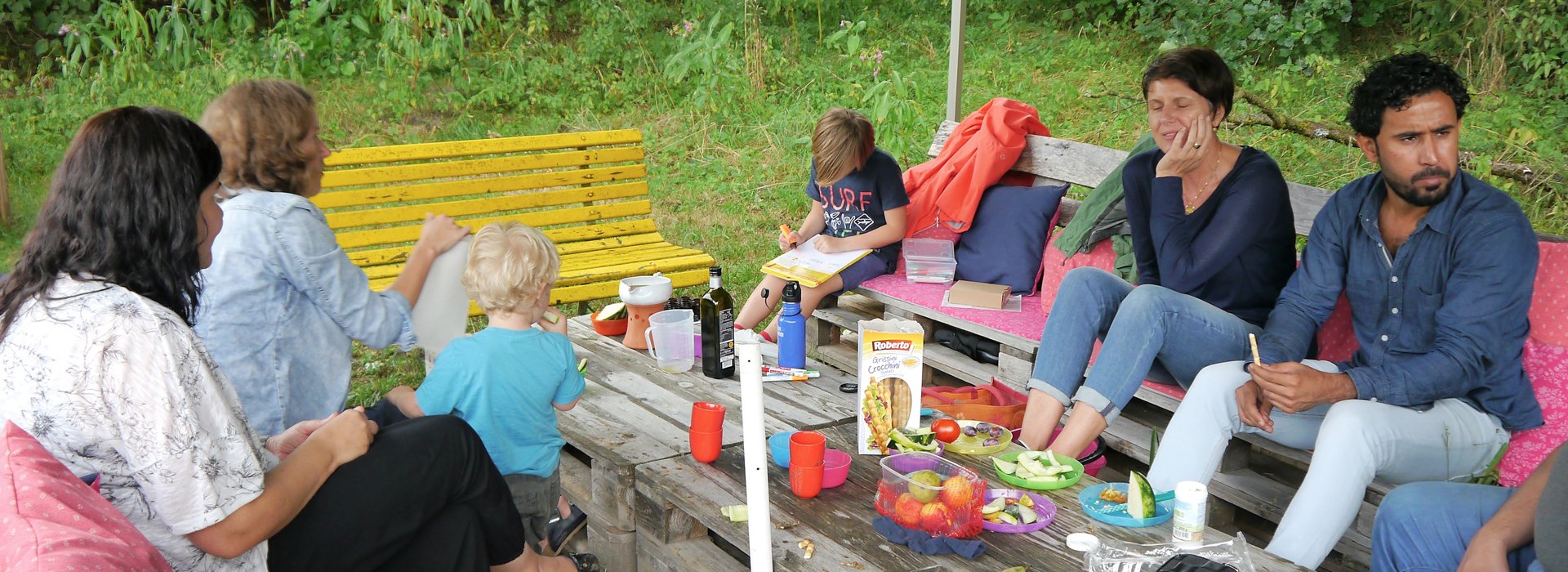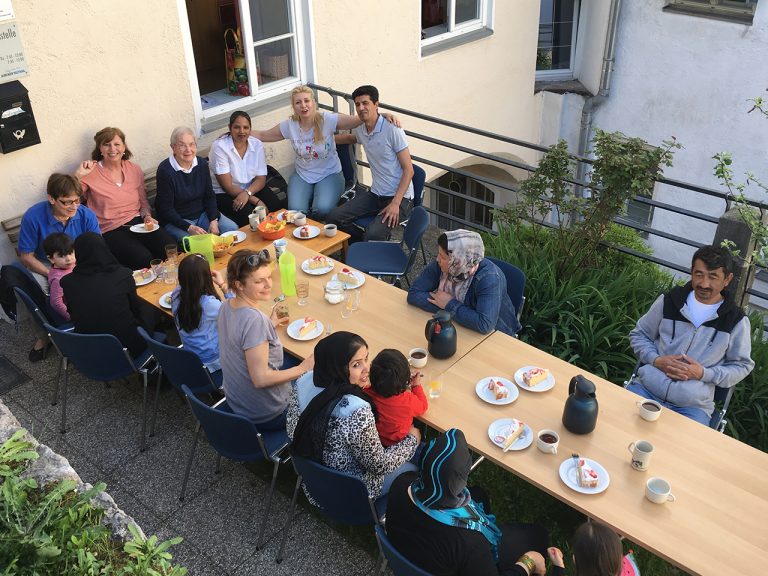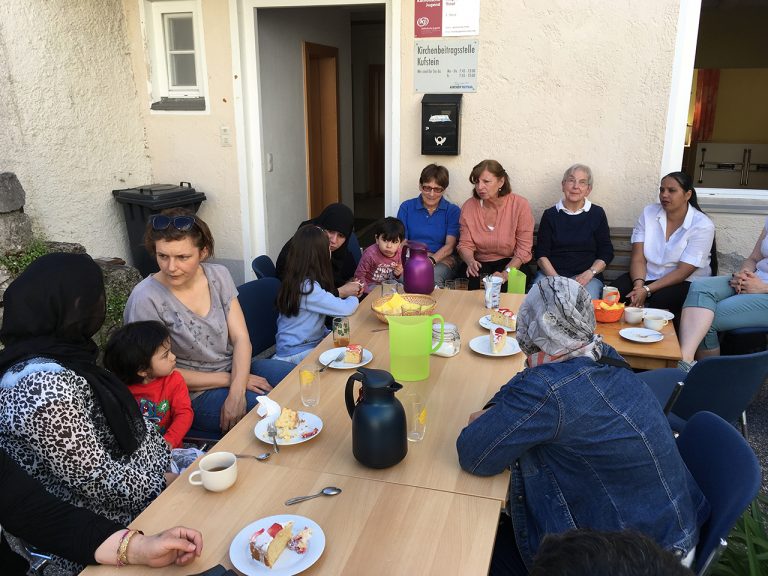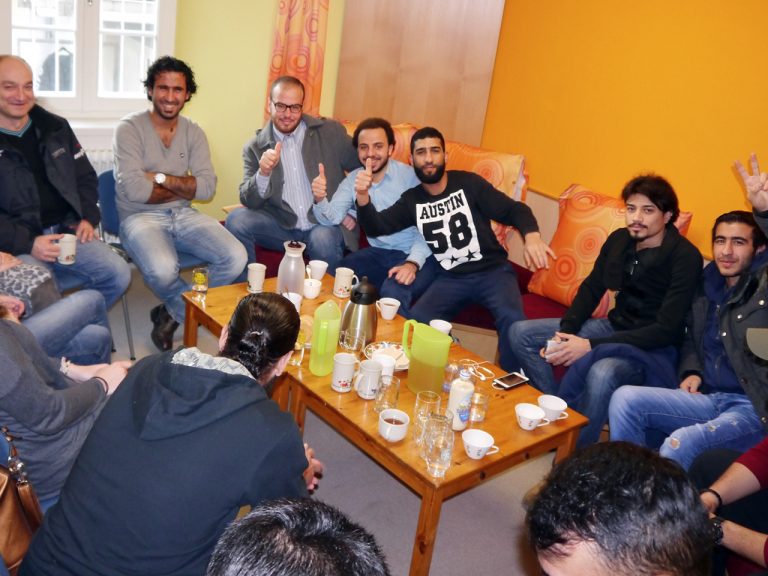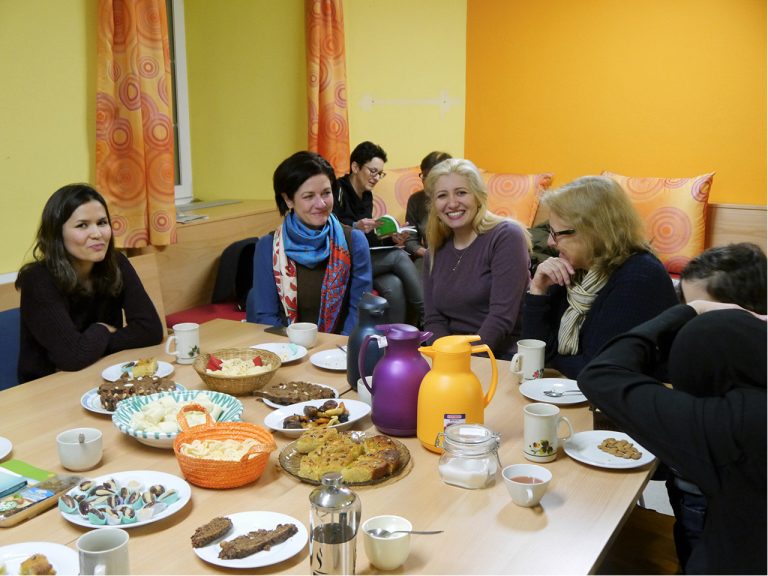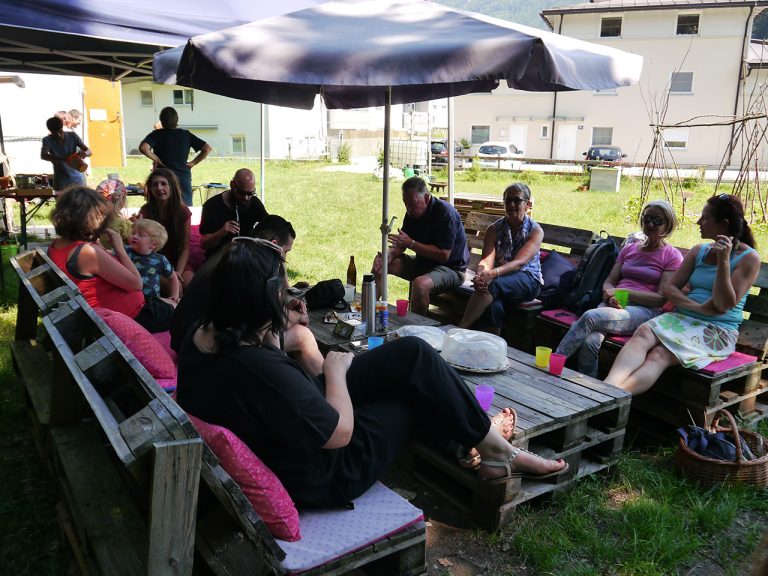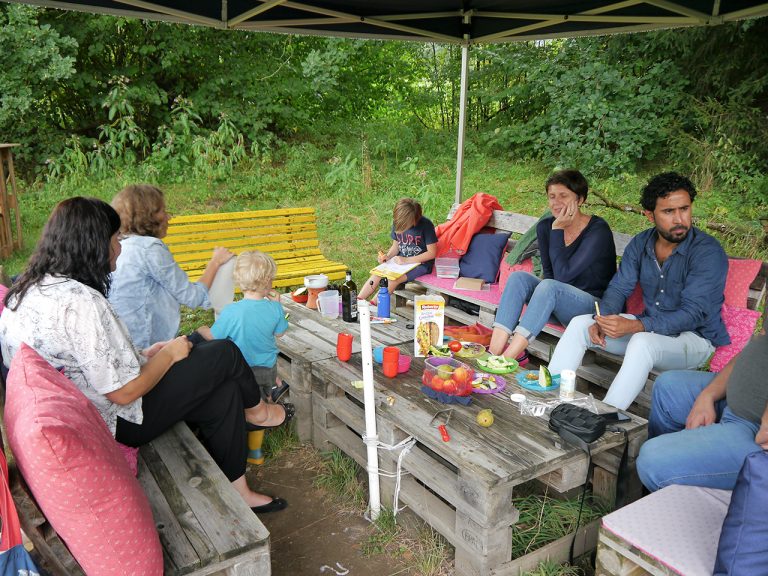Weekly open meeting point for refugees and other people creating community and offering support in all different questions.
"Simply start doing it. It is easy to get started and you have nothing to lose.”
Description of the activity
The Begegnungscafé Kufstein is a meeting point for refugees, asylum seekers and those who are living in Kufstein for longer. The Begegnungscafé started in spring 2016 and since then takes place every Friday from 4 to 6 p.m. in a common room of the parish. People can come and spend time together. There is no fixed program. The space is open for any activity any participant wants to start. In the last two years the Begegnungscafé was a place for cooking, sewing, painting, playing games together or many times simply for chatting and getting to know each other. People who are new in town use the Begegnungscafé to ask questions, to find support to translate official letters or to do their German homework. It is a place to practice German and to learn from each other’s experiences. In the beginning the Begegnungscafé was mainly visited by Syrian men, but now Afghani women with their children are the main user
“Simply start doing it. It is easy to get started and you have nothing to lose.”
group.
The Begegnungcafé is the main entry point for people who are new in town or who want to join the association Kufstein hilft. In summer the people from Begegnungscafé go to the community garden and the harvest from the community garden is brought to the Begegnungscafé

 English
English  Deutsch
Deutsch  Español
Español  Svenska
Svenska 